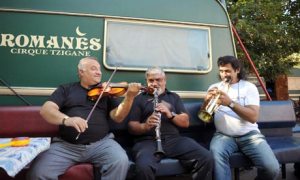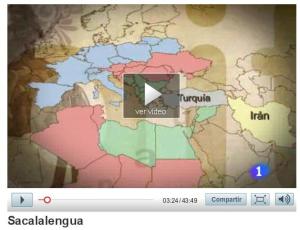Después de 4 años con el blog de la lengua gitana, creo que ha llegado el momento de darle un cambio de dirección a la página, a los contenidos y a mí mismo.
Han sido muchos miles de comentarios, muchos cientos de miles de visitas, de participación y la verdad es para estar orgulloso. Muy orgulloso. De todo corazón, gracias a todos.
Aunque para ser sincero, este blog se creó con otras intenciones, que por errores exclusivamente míos (como administrador y creador de este sitio) pues no se han llegado a concretar.
Quizá por falta de tiempo y de colaboraciones necesarias, no se ha podido verter todo el contenido que un blog sobre la lengua gitana debería contener, pero, es que sólo hay una persona dedicada a este menester, o sea yo.
Todo el mundo que llega me pide que yo le enseñe rromanés, pero es que yo no sé rromanés, solo cuatro cosas. Este blog era para un intercambio de conocimientos y ganas de aprender. Los que saben, aportan, los que quieren aprender, aprenden.
Pero ha sido tarea bastante complicada conseguir tal objetivo, y vuelvo a repetir, debido a mi mala gestión del blog.
Por eso, creo que es necesario un cierre temporal, para poder reciclarme, para venir con más ganas o para hacer cosas nuevas.
Igualmente el blog seguirá abierto para poder seguir dejando comentarios (porque al final simplemente se ha convertido en un foro donde la gente dice:«me encanta la cultura gitana, yo el otro día descubrí que soy gitano, y quiero aprender vuestra lengua». Este básicamente es el monotema que ha centrado el blog durante los dos últimos años).
Quizá dentro de un tiempo, cuando ya no esté aburrido del blog, pueda venir con cosas nuevas o renovadas y darle un toque más interactivo al aprendizaje de esta nuestra lengua, que, 4 años después no he conseguido difundir como yo esperaba.
Nos vemos pronto.
——————————————————————————————————-
After 4 years with the blog of the romani language, I think it’s time to give a change to page, to the content and to myself.
There have been many thousands of comments, many hundreds of thousands of visits, participation, and the truth is to be proud. Very proud. I sincerely thank you all.
Although to be honest, this blog was created with other intentions, exclusively for my mistakes(as administrator and creator of this site) as they have not come to fruition.
Perhaps lack of time, and necessary collaborations has not been able to pour the entire contents on a blog should contain the gypsy language, but is that only one person dedicated to this task, that is me.
Everyone who asks me to teach rromanés, but I do not know rromanés, just a few words. This blog was to exchange knowledge and willingness to learn. Those who know rromanés can give his knowlegde, those who want to learn, can learn.
But it was rather complicated task to achieve this goal, and I repeat, due to my poor management.
So I think you need a temporary closure for recycling, to come forward with more or new things.
Likewise, the blog will remain open to continue leaving comments (because in the end has simply become a forum where people say «I love the romani culture, the other day I discovered that I am rroma, and I want to learn your language.» This monotema basically is the blog that has focused the past two years).
Maybe in a while when I’m not bored with the blog, can come up with something new or renovated and give it a more interactive learning of this, our language, which, 4 years later I have not spread as I expected.
See you soon.




Debe estar conectado para enviar un comentario.